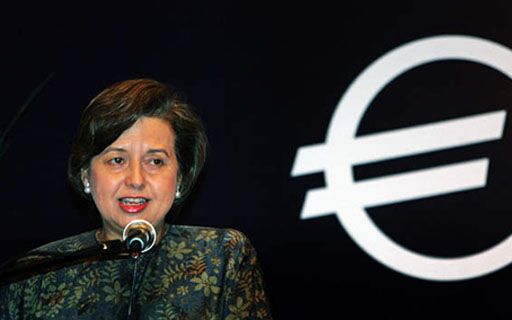
Islam’s Financial Power
Among numerous significant current events that occurred in the past couple weeks, there was one that received little coverage by the press. It has to do with the emergence of an Islamic financial system set to contend with the Anglo-American, European and Asian systems. The fact that a principal voice supporting this development came from within Asia adds its own unique sense of interest to this emerging phenomenon.
On February 7, the governor of the Central Bank of Malaysia, Dr. Zeti Akhtar Aziz, opening the Second International Research Conference on Islamic Banking, in Kuala Lumpur, called for the building of a robust Islamic financial system. In her keynote address Dr. Aziz stated, “In the recent decade, the Islamic financial system has experienced remarkable growth and transformation, demonstrating its potential as a competitive form of financial intermediation. Today, Islamic finance represents a multi-billion-dollar industry with a comprehensive range of products and services, serving a broad spectrum of consumers and businesses that extends beyond the Muslim world. …
“These developments have cumulatively evolved the Islamic financial system to increasingly become an integral component of the international financial system. … [T]hese developments are supported by a strong regulatory and supervisory framework reinforced by the legal and sharia framework …” (RiskCenter, February 15).
So, consider: We have a dollar system under huge strain and in decline, increasingly under challenge by the upstart European Monetary Union underpinned by the euro, a currency now worth 18 to 20 percent more than the dollar. There is a continuing call for more oil contracts to be written in euros rather than dollars. We have a greatly undervalued Chinese currency. And now, rising calls for Islamic countries to separate themselves into their own financial and banking bloc.
This all spells incredible disruption in the future to the global financial system as the world has known it since the close of World War ii.
What is this Islamic banking and financial system that has suddenly developed over the past decade?
Long regarded as a system for laundering money earned by nefarious means, the Islamic financial system was tainted for generations by the process of hawala, or hundi. This is a traditional system of informal transactions for which no promissory notes are issued, and hence it easily lends itself to black market operations, bypassing tax, exchange controls and government regulations. Such a system, which grew out of the trade on the old silk road in medieval times, is simply not geared to today’s sophisticated financial markets.
The huge sums now being handled by many Islamic nations, awash in oil profits, are forcing a rapidly developing formalization of Islamic financial practices in order to give the growing system a more positive image. However, emerging controls within the system are based upon Islamic law, known as sharia. This is regarded as the law of Allah. Islam classically draws no distinction between religious and secular practices. Sharia embraces not only religious rituals, but many aspects of day-to-day life, social issues, politics, economics, business, contract law, banking and finance.
It is the observance of sharia principles, bound up in the practice of the religion of Mohammed, that increasingly separates the practices of the developing Islamic financial world from those of the longer-established financial systems of the West and the Far East. This is what separates this emerging system of banking and finance from that of Anglo-America, the European Union and greater Asia: It is based on the religious principles of the Islamic world. As Dr. Aziz repeatedly underscored in her keynote address, “Underpinning the success of Islamic banking system is the strengthening of research and intellectual capacity in the sphere of finance and sharia.”
Thus, global financial markets are increasingly seeking access to this Islamic market, only to find that their institutions must abide by Muslim sharia law in the conduct of their business with Islamic financial entities.
The rapidity of the rise of the Islamic financial system is reflected in the convening of numerous conferences all over the world to educate bankers and financiers in its various Islamic nuances. Malaysia, an Islamic nation, within whose national capital, Kuala Lumpur, last week’s conference was held, has produced a model Islamic financial system that is being looked to as the standard for other nations wishing to develop within the international Islamic banking and financial system. In fact, Malaysia’s government has long touted the revival of the gold dinar as a classic means of exchange for transactions between Islamic nations.
We have recently drawn attention to the prospect of Iran launching an Islamic exchange for transactions within the oil market. Publicized as the “Iranian oil bourse” (iob), the exchange is set to open in March, with the prospect of trading in euros instead of the traditional exchanges in the dollar. If this oil bourse proceeds, in tandem with the growth of a pan-Islamic financial system, with foreign transactions constrained within Islamic law, how long might it be before we see a separate Islamic currency competing on global markets against the euro and the dollar? Will the gold dinar yet have its day?
